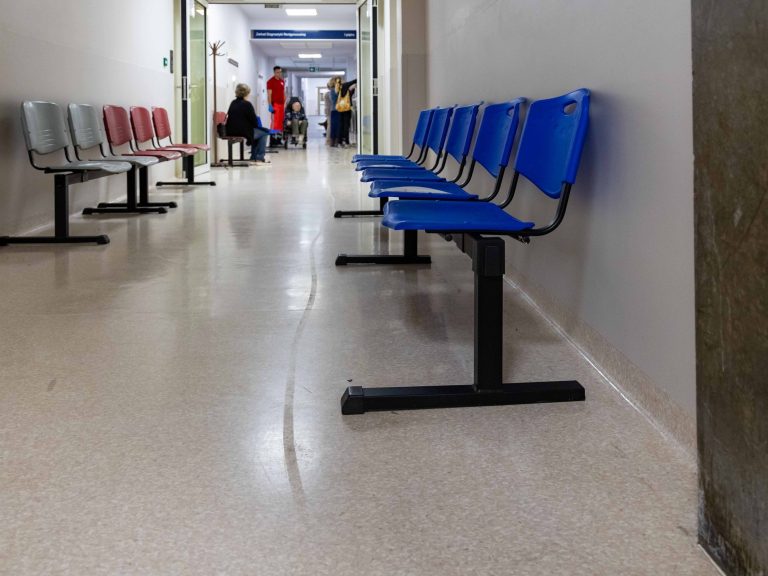Prof. Agnieszka Słowik: Hospitals need to be able to use antidotes for xabans

In up to half of patients, a hemorrhagic stroke ends in death, and two-thirds of those who survive it are disabled. Therefore, everything must be done to treat hemorrhagic strokes as best as possible. In the event of a hemorrhagic stroke, patients taking anticoagulants should be given treatment that reverses the effect of these drugs, the so-called antidote: this is what international guidelines and Polish experts say.
Stroke is the second leading cause of death and the first cause of disability among adults; approx. 13 percent strokes are hemorrhagic strokes. There may be many causes, one of them is the intake of oral anticoagulants by patients with atrial fibrillation. In the case of atrial fibrillation, taking anticoagulants is necessary to prevent ischemic stroke. However, in exceptional cases, a hemorrhagic stroke may occur: in this case, effective treatment must be undertaken as soon as possible.
– New generation oral anticoagulants, including xabans (apixaban and rivaroxaban) and a coagulation factor IIa inhibitor (dabigatran), are commonly used in the prevention and treatment of venous thromboembolism and in the prevention of stroke and peripheral embolism in patients with unrelated atrial fibrillation. valvular. Both groups of drugs, in addition to their therapeutic benefits, may cause hemorrhagic complications, including cerebral hemorrhages, in a small percentage of patients. The risk of cerebral hemorrhages under the influence of new anticoagulants is halved compared to the previous generation drugs, vitamin K antagonists, which constitutes a significant clinical advantage of these preparations, but they can still happen – said Prof. Agnieszka Słowik, national consultant in the field of neurology during the Visionaries of Health 2024 conference. Reformers.
The most serious complication of taking anticoagulants is hemorrhagic stroke, in which the mortality rate exceeds 50%, and as many as 2/3 of surviving patients have various levels of disability.
– The prognosis of patients with cerebral hemorrhage is very serious: half of people die, and those who survive often have a very large neurological deficit and late consequences in the form of epilepsy, cognitive disorders, and depression – emphasized Prof. Agnieszka Słowik.
In the event of a hemorrhagic stroke, the best treatment is the use of drugs that reverse the effect of anticoagulants – the so-called antidote. In Poland, an antidote for dabigatran is currently available in hospitals, but no antidote for rivaroxaban and apixaban is yet available. It has recently been registered in the USA and Europe: andexanet alfa is the first specific strategy for the treatment of the target population, with a rapid action and high effectiveness, confirmed in clinical trials. This option is recommended for use by many scientific and clinical societies, including: American Heart Association, American Collage of Cardiology, Heart Rhythm Society, American Society of Hematology, British Society of Gastroenterology, NCCN (National Comprehensive Cancer Network).
The issue of access to the xaban antidote is currently gaining particular importance because the so-called modern anticoagulants will slowly be generated, which creates hope for wider reimbursement coverage by the Ministry of Health, and thus their more frequent use. Therefore, a very important issue is to optimally protect the safety of patients taking xaban. Although a hemorrhagic stroke is rare, if it does occur, you must act immediately.
– The use of an antidote is to reduce the increase in the volume of hemorrhage, such treatment is very effective – said prof. Nightingale. In the natural course, cerebral hemorrhage progresses over the next 2-3 days; the use of an antidote is aimed at reducing the increase in hematoma volume over time.
– We initially estimate that in Poland, a maximum of 100 people will be eligible to receive an antidote for intracerebral hemorrhage each year in patients taking xaban. This is not a large group, but for them it is life-saving treatment. This is a very important medicine. It is worth using it because the consequences are dramatic – emphasized prof. Agnieszka Słowik. Experts hope that all antidotes to anticoagulants will soon be available in hospitals treating stroke patients.
Prof. Agnieszka Słowik, as a national consultant in the field of neurology, together with the national consultant for emergency medicine, submitted an application in mid-2023 to include the possibility of using an antidote for xabans in hospital services. Clinicians are still waiting for the Ministry of Health to consider this application and, above all, for the possibility of using such treatment in a hospital. This is a life-saving treatment, so it should be available to patients as soon as possible.






